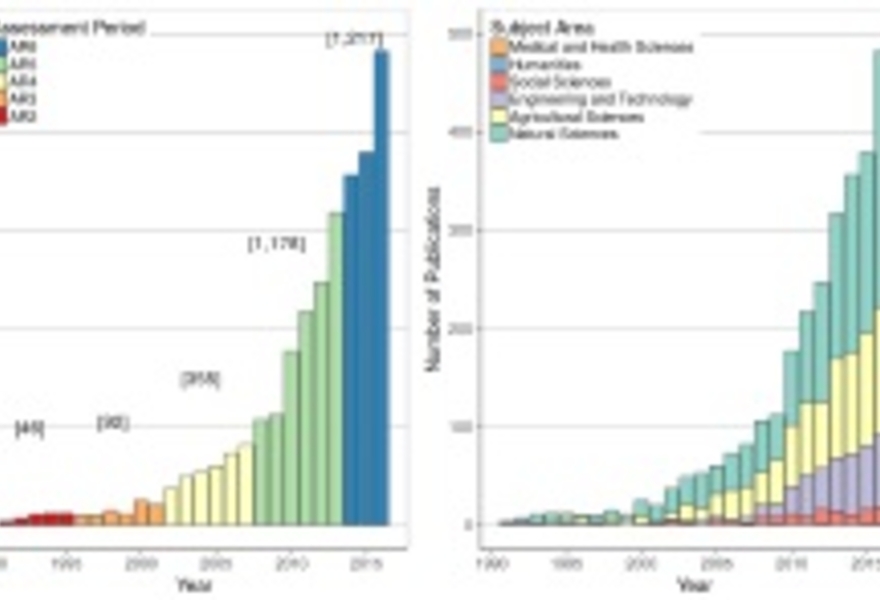How to deal with the literature explosion on negative emissions?
The literature on carbon removal is expanding rapidly—much faster than the field of climate change as a whole. This poses significant challenges for upcoming IPCC assessments.
Generating negative emissions by removing carbon dioxide from the atmosphere is a key requirement for limiting global warming to less than two or even 1.5 degrees Celsius as established in the Paris Agreement. However, an explosion in scientific publications on climate change makes it increasingly difficult to comprehensively track the scientific advancements within and across fields. Using so called “scientometric” and big data methods, a team of researchers from the Mercator Research Institute on Global Commons and Climate Change (MCC) and the Max Planck Society—for the first time—assessed the size, composition, development and topic structure of the scientific knowledge on carbon removal technologies.
Lead author Jan C. Minx, head of the MCC working group Applied Sustainability Science, together with other the scientists now published the article “Fast growing research on negative emissions” in the scientific journal “Environmental Research Letters”.
The study finds that the new literature on negative emissions and carbon removal technologies that has become available for the upcoming IPCC report is roughly equivalent in size to the entire climate change literature that was covered by the IPCC for its First Assessment Report in the early 1990s. “We find that the development of the literature on carbon removal technologies has started later than for climate change as a whole, but proceeds much more quickly now,” says Minx. “Almost 3,000 studies have accumulated between 1991 and 2016—with nearly 500 new publications in 2016 alone.” The study concludes that research on carbon removal technologies nevertheless remains marginal – with less than 1% of the climate change literature dealing with the issue - in the wider climate change discourse despite its importance for global climate policy.
The prospect of keeping the international climate goals is determined by the nations' ability to mobilize carbon removal technologies at a grand scale over the 21st century. Establishing a comprehensive overview of the scientific knowledge on this matter will therefore play a pivotal role in upcoming climate change mitigation assessments—particularly, the Special Report on the 1.5°C limit by the Intergovernmental Panel on Climate Change (IPCC).

Source: MCC / IPCC, OECD
More information:






